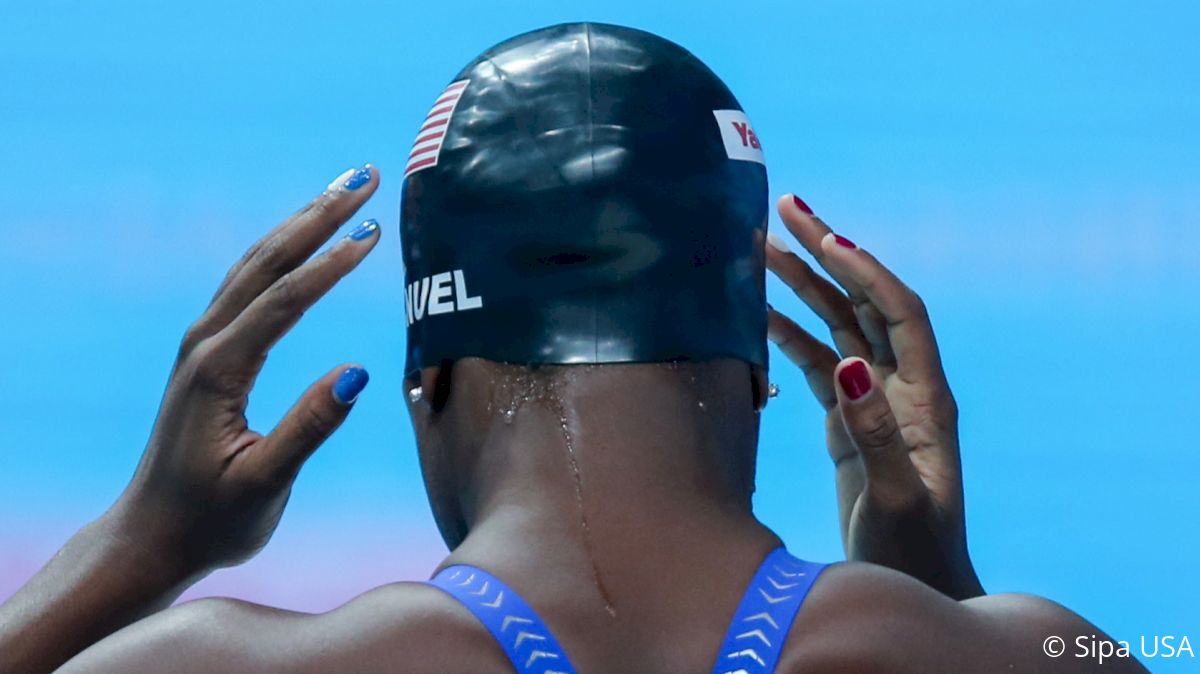Breathing Through The Butterflies: How To Manage Nerves
Breathing Through The Butterflies: How To Manage Nerves
This article talks about how swimmers can deal with nerves behind the blocks by concentrating on deep breathing techniques.

Butterflies in the stomach, heart-rate increasing, jittery limbs. We all know the feeling. It is our body's way of responding to a perceived stressful or important situation. To learn more about the physiological arousal that accompanies "nerves," check out this quick ASAPScience video.
How an athlete interprets these physiological sensations can have an incredible impact on performance. This can be an uncomfortable feeling and some may perceive their nerves with panic and worry. The best athletes recognize this arousal as a sign that their body is gearing up to perform. They channel this arousal to aid, not hinder, their performance.
I've never been afraid of big moments. I get butterflies… I get nervous and anxious, but I think those are all good signs that I'm ready for the moment. -- NBA star Stephen Curry
So, how can you channel your nerves to help you compete at your best when the "pressure" is on? Some of the mental skills we've already discussed like mental imagery, strong self-talk, and progressive muscle relaxation can all help.
Today we will add deep breathing to your arsenal. Next time you watch a top-level basketball player at the free-throw line or an experienced swimmer behind the block, try to notice the deep, diaphragmatic breaths they take immediately before the task. Taking a few deep breaths can lead athletes to feeling calm and in control.
The key is making sure one gets a full breath that contracts the diaphragm (a muscle under the lungs) causing the stomach to rise, and minimally raises ones chest and shoulders. Awareness of how you are breathing (diaphragmatic vs. short, shallow breaths) is critical for channeling one's nerves for an optimal performance.
How To Improve Your Deep Breathing Skills
- First lie down or sit up straight and place one hand on your chest and one on your stomach. Take in a few deep breaths and focus on feeling your stomach rise more than your chest.
- Spend five minutes a day focusing on your breathing with the above exercise.
- Use other relaxation and breathing exercises on apps like Pacifica, Lucid, and Smiling Mind.
- Add diaphragmatic breathing to your mental imagery, progressive muscle relaxation, and pre-race routines.
Embrace your butterflies with excitement and know your body is telling you it is ready to perform. Structure your self-talk around this belief. Use relaxation and confidence techniques like mental imagery to prepare you for those moments right before a performance. Finally, breath through the butterflies by channeling your nerves with deep diaphragmatic breaths.
---
Andrew "Chip" Augustus is the senior swim coach at Cardinal Aquatics in Louisville, Kentucky. Chip graduated from Centre College in 2011, where he swam, with degrees in history and psychology. He earned his M.Ed. in counseling psychology from the University of Louisville in 2016. Chip volunteers with Dr. Vanessa Shannon, UL's Director of Mental Performance. He works on his own mental skills by swimming masters and competing in triathlons; he completed the 2016 Louisville Ironman.